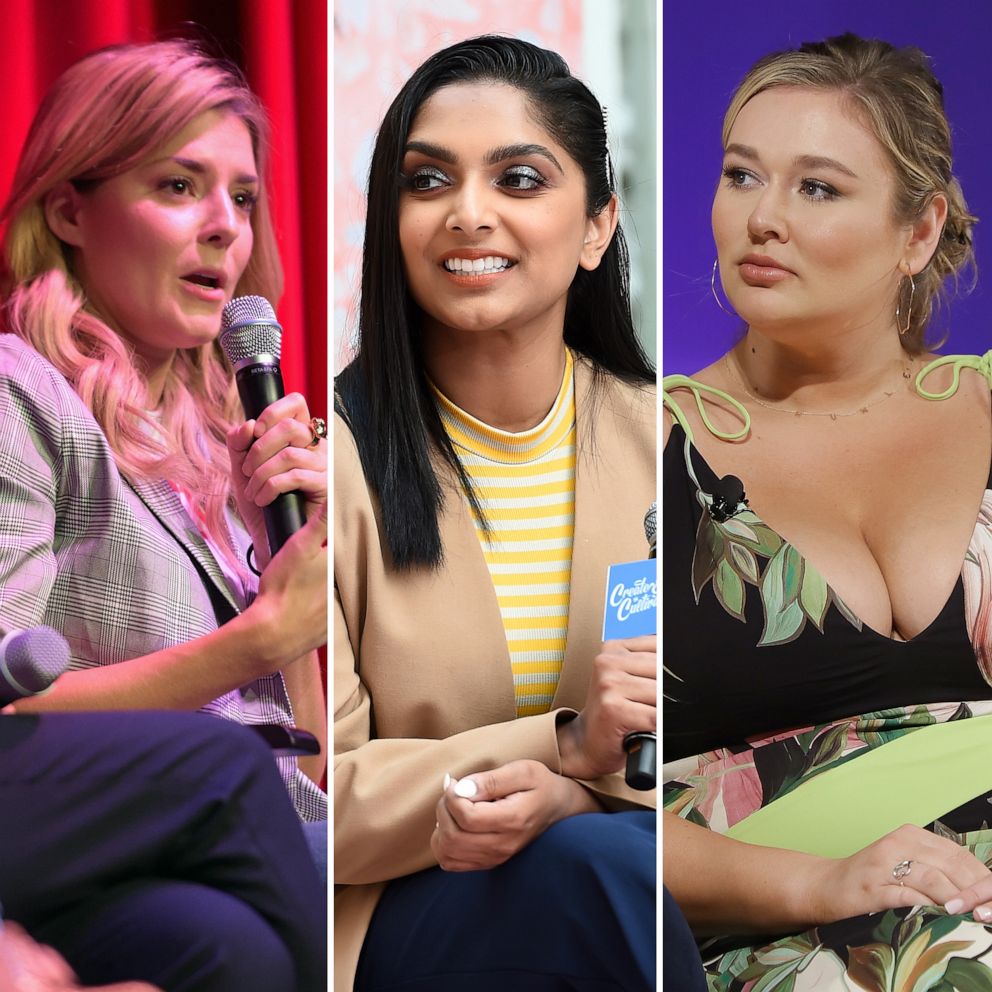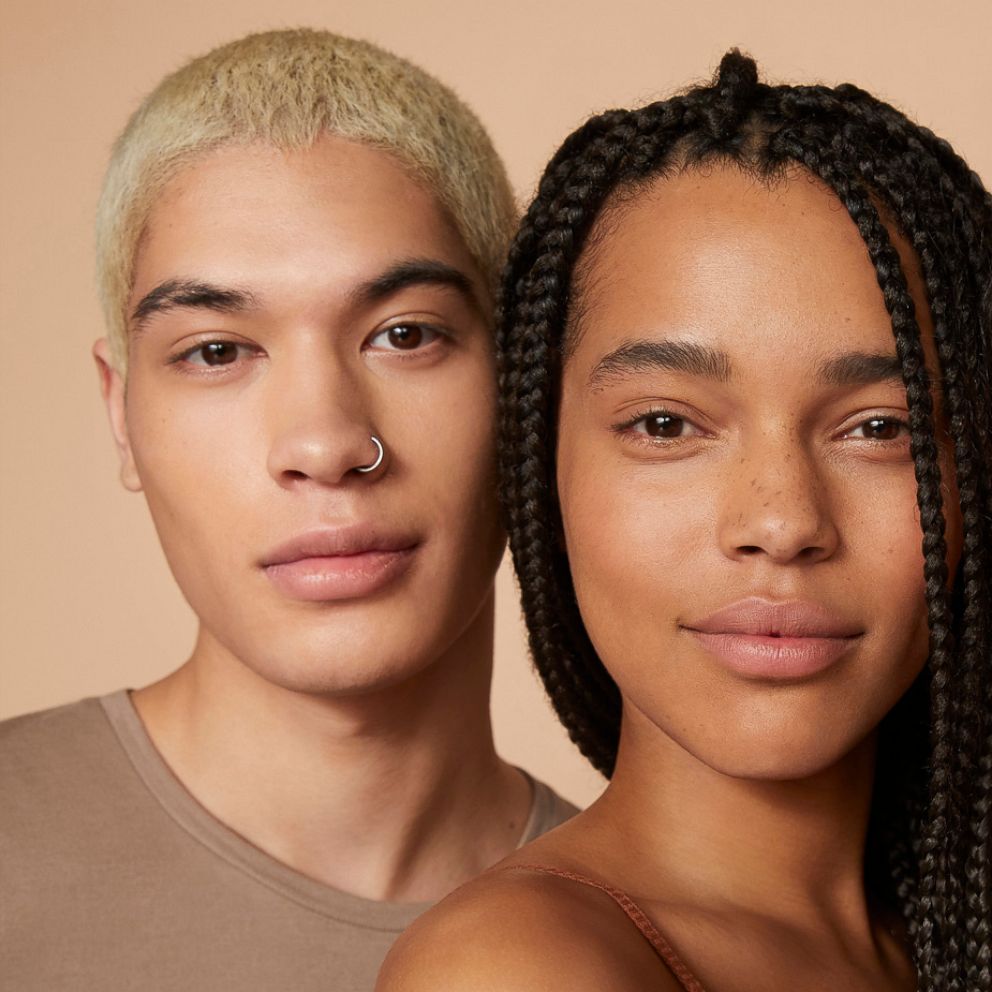How 1 influencer is 'flipping the switch' on the beauty industry and building a brand
Live Tinted creator Deepica Mutyala proves there are many paths to success.
For influencer-turned-CEO Deepica Mutyala, life has come full circle.
Mutyala went viral in 2015 for recording a video showing how to mask dark circles with red lipstick. That video currently sits at more than 10 million views.
Fast forward and she's launched a product called the Huestick, a multipurpose stick and color-correcting tool that comes in three different shades, each matched to a person's undertones to mask dark eye circles, hyperpigmentation and other spots.
According to the American Osteopathic College of Dermatology, hyperpigmentation is a skin condition, typically harmless, in which patches of skin are darkened or discolored compared to the person's normal surrounding skin. Hyperpigmentation can happen to anyone and doesn't have just one factor or cause.
But the stick couldn't have been launched without the help and feedback of her own followers.
"Why create a product by yourself without including the people that it's going to be sold to?" she told "Good Morning America" at the Create & Cultivate conference in New York City.
To tackle the issue, Mutyala invited 15 of her followers into her home where they tried early versions of the product and provided feedback that she and her team reviewed every step of the way.
"When I think of Live Tinted, I think of a movement first and the products second, and they understood that."
"For me, it was like, 'Why not create the best focus group possible to make it so that product line and anything that we create is being done for them by them?'" she said.
The Huestick started selling a year after Mutyala launched her personal brand, Live Tinted, an inclusive digital platform where people from all backgrounds can come together to talk about representation in beauty and culture.
Building a community before the brand
Mutyala, who has close to 206,000 followers on Instagram and 234,000 subscribers on YouTube, spent a year building the community on Live Tinted to foster more conversation about representation in beauty, especially as it relates to those of middle-skin-tone ranges (hence the "Tinted" name).
Brittny Thomas, a family assistant and nanny, is a model who participated in Live Tinted's "Hue to Know" video series in which she shared her personal beauty stories.
Thomas told "GMA" that Live Tinted created a product and a community for those who haven't felt seen in the past by other brands.
"It's not 40 different shades. It's three colors that can essentially work for everyone. It works for me, a dark-skinned, African American girl. It works for, you know, my Persian friends," she said. "It seems like it's truly universal."
"GMA" spoke with some of Live Tinted's followers who noticed how other brands launched 40-plus foundation shades after Rihanna's Fenty Beauty was one of the first to do so. They added they were were hesitant that such expansive lines were becoming a marketable trend rather than focusing on the actual issue, which is ensuring that all skin tones had access to makeup products they could actually use.
One of Live Tinted's followers, Ankita Veta, said she hopes it eventually becomes normal for brands to release more inclusive lines that represent a wider range of people.
"I want to see a point where it's not so revolutionary that we should be surprised that this brand is actually addressing everyone's concerns or actually testing their products on people who are going to use it," she said.
Flipping the switch
In the initial stages of Live Tinted, Mutyala pitched to a pool of male advisers who didn't understand her vision of establishing a community first. They instead told her to show proof that she could sell the product and then return to talk to with them.
Female investors, on the other hand, had a different reaction.
"They understood that there needed to be a place and something that had a deeper purpose," she told "GMA." "When I think of Live Tinted, I think of a movement first and the products second, and they understood that."
Mutyala emphasized the importance of hiring representative and diverse voices, and adds brands should recognize that more.
Bobbi Brown, founder of Bobbi Brown Cosmetics, served as one of Mutyala's mentors, calling her an "ultimate new breed of entrepreneur."
"She uses her entrepreneurial skills and combines them with digital prowess," Brown told "GMA" in an email. "She includes her audience in the conversation when determining her marketing strategies and sales tactics."
So far, the idea of a digital community has resonated well with her followers, many of whom haven't grown up seeing themselves represented in larger beauty brands and companies.
Neesha Daulat, a Live Tinted follower and consumer, thinks Mutyala was smart to establish a close community first so people understood her purpose.
"She built her purpose with Live Tinted and created a following around the idea that there needs to be more representation and more attention given to a wider range of skin tones and to people of color," she told "GMA."
Daulat adds that Mutyala is also "flipping the switch" on defining beauty, saying that she wants people to feel beautiful whether or not they decide to cover their hyperpigmentation.
Beauty with a purpose
Mutyala joins a list of celebrities and influencers who are listening to concerns within the beauty community.
Since Rihanna launched her cosmetic line in 2017, it's grown to feature 50 foundation shades.
Cover FX, a vegan and cruelty-free cosmetic brand, took the conversations of the beauty community to the next level. It lets users customize their own products so that everyone can walk away with a shade that most resembles their complexion. Cover FX also has more than 40 foundation shades.
Tristan Walker, founder of the startup Walker Company & Brands, noticed most drugstores sold multi-blade razors that aren't always compatible for men and women of color.
To solve this issue, Walker launched a grooming brand in 2013 called Bevel, which sold single-blade razors along with a shaving brush, shaving cream and other skincare products -- soon carried by Target and Amazon.
He also understood the need for a larger conversation around personal grooming for men and women of color, so he launched a digital platform called Bevel Code to bring as many people together to continue that conversation.
In December 2018, Walker sold Bevel to Procter & Gamble.







